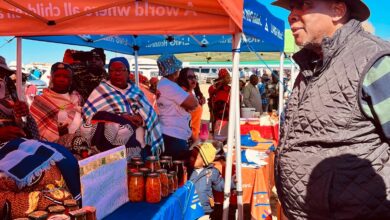What To Look Out For When Dealing With Utilities And Services In Lesotho

When moving to or traveling through Lesotho, understanding how to manage utilities and services is crucial for a smooth experience. As a country with its own unique infrastructure and systems, navigating these essentials requires some insight and preparation.
1. Electricity and Power
Lesotho’s electricity supply is primarily managed by the Lesotho Electricity Company (LEC). Here are key points to consider:
- Voltage and Plug Types: Lesotho typically operates on a voltage of 220-240V AC, 50Hz. The plug types commonly used are Type M (three large round pins), so travelers may need adapters if their devices use different plug types.
- Power Outages: While efforts are made to maintain a stable supply, power outages can occur. It’s advisable to have backup solutions like battery packs or surge protectors, especially during rainy seasons when outages may be more frequent.
- Billing and Payments: Residents typically receive bills monthly. Payments can be made at local banks, online, or at LEC offices. Ensure bills are paid promptly to avoid service disruptions.
2. Water Supply and Sanitation
Access to clean water is crucial. Key considerations include:
- Water Sources: Urban areas usually have piped water systems managed by the Water and Sewerage Company (WASCO). Rural areas may rely on communal taps or wells.
- Water Quality: While piped water is generally safe in urban areas, it’s recommended to drink bottled water or use purification methods in rural and remote locations.
- Conservation: Water shortages can occur, particularly in dry seasons. Conservation efforts, such as using water-saving devices and fixing leaks promptly, are encouraged.
3. Telecommunications and Internet
Communication services are essential for staying connected. Points to note include:
- Mobile Networks: Major providers include Vodacom Lesotho, Econet Telecom Lesotho (ETL), and others. SIM cards and top-up vouchers are widely available for purchase.
- Internet Access: High-speed internet is available in urban centers. In rural areas, connectivity may be slower or less reliable. Consider mobile data options for flexibility.
4. Transportation and Infrastructure
Getting around Lesotho involves understanding local transportation options:
- Road Conditions: Roads can vary from well-maintained highways to unpaved tracks, especially in rural areas. Check road conditions and plan accordingly.
- Public Transport: Minibus taxis are a common mode of transport between towns. Private taxis and rental cars are also available in urban centers.
5. Customer Service and Support
When dealing with utilities and services, knowing where to seek assistance is essential:
- Customer Service Contacts: Keep contact details for utility providers handy. These can often be found on bills or through their websites.
- Language: English and Sesotho are the official languages. While English is widely spoken, knowing basic Sesotho phrases can be helpful, especially in rural areas.
Navigating utilities and services in Lesotho requires awareness of local systems and proactive planning. Whether you’re a resident or a visitor, understanding these essentials ensures a smoother experience and enhances your ability to enjoy all that Lesotho has to offer. By staying informed and prepared, you can effectively manage utilities and services while exploring this beautiful country.




